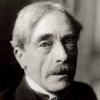One must not always think that feeling is everything. Art is nothing without form.
Quotations about:
artwork
Note not all quotations have been tagged, so Search may find additional quotes on this topic.
In the eyes of those lovers of perfection, a work is never finished — a word that for them has no sense — but abandoned; and this abandonment, whether to the flames or to the public (and which is the result of weariness or an obligation to deliver) is a kind of an accident to them, like the breaking off of a reflection, which fatigue, irritation, or something similar has made worthless.
[Aux yeux de ces amateurs d’inquiétude et de perfection, un ouvrage n’est jamais achevé, – mot qui pour eux n’a aucun sens, – mais abandonné ; et cet abandon, qui le livre aux flammes ou au public (et qu’il soit l’effet de la lassitude ou de l’obligation de livrer) est une sorte d’accident, comparable à la rupture d’une réflexion, que la fatigue, le fâcheux ou quelque sensation viennent rendre nulle.]
Paul Valéry (1871-1945) French poet, critic, author, polymath
“Au sujet du ‘Cimetière marin,'” La Nouvelle Revue Française (Mar 1933)
(Source)
Often rendered as: "A poem is never finished, only abandoned."
Alt. trans.: "In the eyes of those who anxiously seek perfection, a work is never truly completed -- a word that for them has no sense -- but abandoned; and this abandonment, of the book to the fire or to the public, whether due to weariness or to a need to deliver it for publication, is a sort of accident, comparable to the letting-go of an idea that has become so tiring or annoying that one has lost all interest in it." [tr. Maggio]
In the same vein, in "Recollections," Valery wrote: "A work is never completed except by some accident such as weariness, satisfaction, the need to deliver, or death: for, in relation to who or what is making it, it can only be one stage in a series of inner transformations."
Also attributed to W. H. Auden, Oscar Wilde, and Jean Cocteau, For more discussion of the origin of this phrase, see here.


